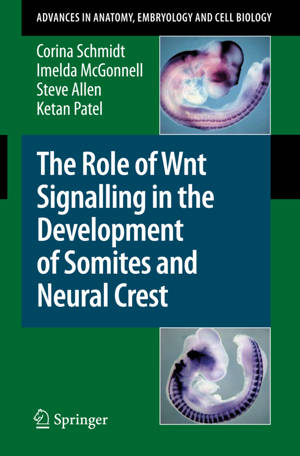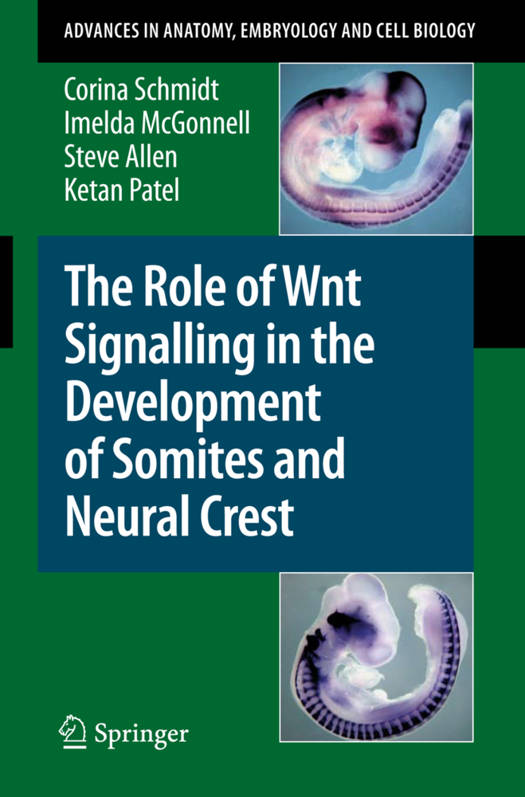
Bedankt voor het vertrouwen het afgelopen jaar! Om jou te bedanken bieden we GRATIS verzending (in België) aan op alles gedurende de hele maand januari.
- Afhalen na 1 uur in een winkel met voorraad
- Gratis thuislevering in België vanaf € 30
- Ruim aanbod met 7 miljoen producten
Bedankt voor het vertrouwen het afgelopen jaar! Om jou te bedanken bieden we GRATIS verzending (in België) aan op alles gedurende de hele maand januari.
- Afhalen na 1 uur in een winkel met voorraad
- Gratis thuislevering in België vanaf € 30
- Ruim aanbod met 7 miljoen producten
Zoeken
The Role of Wnt Signalling in the Development of Somites and Neural Crest
Corina Schmidt, Imelda McGonnell, Steve Allen, Ketan Patel
€ 167,95
+ 335 punten
Omschrijving
1 Introduction 1. 1 Wnts and Development The f amily of Wnt genes consists of at least 19 members in vertebrates. Wnts ha v e multiple roles during normal development and aetiology of diseases (Wodarz and Nusse 1998; Moon et al. 2002, 2004). These genes encode for glycoproteins that are released in the intercellular space, acting as intercellular mediators (Moon et al. 1997). By binding to their special receptors, the Frizzled (Fz) receptors, they are able to activate at least three different pathways: the canonical, the non-canonical and the Ca 2+ pathway (Fig. 1 ). The Wnt family has been subdivided, using functional assays, into at least two subclasses. In Xenopus, Wnt1, Wnt3a and Wnt8 are able to induce axis duplication in embryos, whereas Wnt4, Wnt5a and Wnt11 cannot (Du et al. 1995). Those Wnts that are able to induce axis duplication are thought to act canonically; those who cannot are thought to act non-canonically. In the literature, therefore, some Wnts are called canonical Wnts while others are called n- cano nical Wnts, suggesting that a special Wnt always activates the same signalling pathway. It is unlikely that the specificity dictating cellular responses resides solely in the Wnt ligands because no one has reported sequence or structural motifs in Wnts that predict their activities in these cellular and embryonic assays.
Specificaties
Betrokkenen
- Auteur(s):
- Uitgeverij:
Inhoud
- Aantal bladzijden:
- 64
- Taal:
- Engels
- Reeks:
- Reeksnummer:
- nr. 195
Eigenschappen
- Productcode (EAN):
- 9783540777267
- Verschijningsdatum:
- 12/06/2008
- Uitvoering:
- Paperback
- Formaat:
- Trade paperback (VS)
- Afmetingen:
- 150 mm x 231 mm
- Gewicht:
- 158 g

Alleen bij Standaard Boekhandel
+ 335 punten op je klantenkaart van Standaard Boekhandel
Beoordelingen
We publiceren alleen reviews die voldoen aan de voorwaarden voor reviews. Bekijk onze voorwaarden voor reviews.









